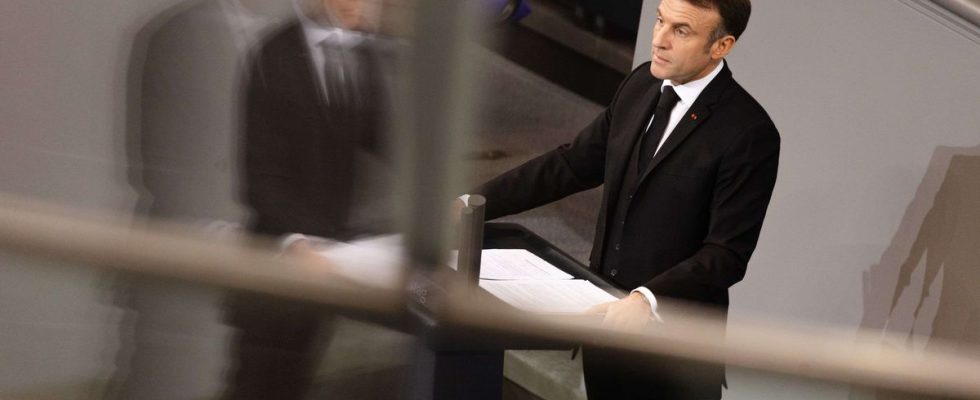The executive and the oppositions suspended from this highly anticipated decision. The Constitutional Council must rule on the government’s immigration bill this Thursday afternoon. The text, hardened by the right and which had fractured the majority during its passage in the National Assembly, is contested by the opposition, associations, and tens of thousands of people mobilized in the streets these last few weekends.
The future of the 86 articles present in the law is now in the hands of the President of the Council, Laurent Fabius, and the other Sages. Land law, family reunification, migration quotas… We take stock of what could be censored with Michel Lascombe, specialist in constitutional law.
- The legislative riders: significant censorship of the text
According to Renaissance MP Sacha Houlié, president of the Laws Committee opposed to the text, around “thirty” of the 86 articles could be challenged. Left-wing parliamentarians counted more than forty. For the most part, they assume that these articles are “legislative riders”, that is to say that they do not have a direct enough link with the initial objective of the bill: “to control immigration » and “enhance integration”. “It’s the rule of the funnel: the government sets the framework at the start and we cannot expand it,” recalls Mic hel Lascombe. All provisions added by parliamentarians which are deemed ‘off-topic’ may be censored, under article 45 of the Constitution.
In this case, a good number of measures added by amendments (the text went from 27 articles to 86) could be skipped, such as measures on the acquisition of nationality, the end of the automaticity of land law, the forfeiture of nationality… “This avenue can be an easy solution for the Sages, a way of kicking in without judging on the merits and sending the hot potato back to Parliament,” adds the former professor at Sciences Po Lille. In this case, the government should – if it wishes – propose a new bill to find out whether the challenged measures are indeed constitutional.
- Substantive censorship, point by point
If the Constitutional Council looks at the merits, several measures also risk being censored. Waiting periods for obtaining social benefits, including family allowances, as well as the “deposit” required from non-EU foreign students, could be suspended in the name of the “principle of equality”. “There can be no inequality before the law, social benefits or taxes for example, between all people who have the same legal situation,” indicates Michel Lascombe. The law provides in particular that housing assistance (APL) is accessible to foreigners only after five years of presence in the territory (or three months of work in France). Which could constitute inequality between foreigners, depending on their situation.
Migration quotas, which must be set for three years by Parliament, could contravene the principle of separation of powers. “This is a problem that the Constitutional Council must decide: is it a legislative or governmental competence? », Notes the specialist, while reception decisions (giving a residence permit for example) fall within the competence of the prefects, and therefore of the executive.
Finally, the tightening of the conditions for family reunification could be seen as an attack on the right to family and private life. “This right to lead a family life is notably present in the preamble to the 1946 Constitution. The Wise Men must define to what extent one can delay or condition the fact of being able to bring one’s wife or children for a foreigner,” he adds.
A delegation of left-wing deputies, heard last week by the Constitutional Council, simply demanded total censorship of the bill. This is also the case of certain jurists engaged against the text, who denounce in particular “the intervention of Matignon and the Elysée during the discussions” in Parliament, in particular during the Joint Joint Commission. “It’s not really realistic. Especially since in the past, other Prime Ministers have already met parliamentarians during the CMPs, perhaps in a slightly more discreet manner,” smiles Michel Lascombe.
Since 1958, the Constitutional Council censored more than 400 laws passed in Parliament, overwhelmingly partially. Only 20 decisions resulted in “a verdict of total non-compliance”, i.e. censorship of an entire bill, such as the Duflot law on social housing in 2012.

